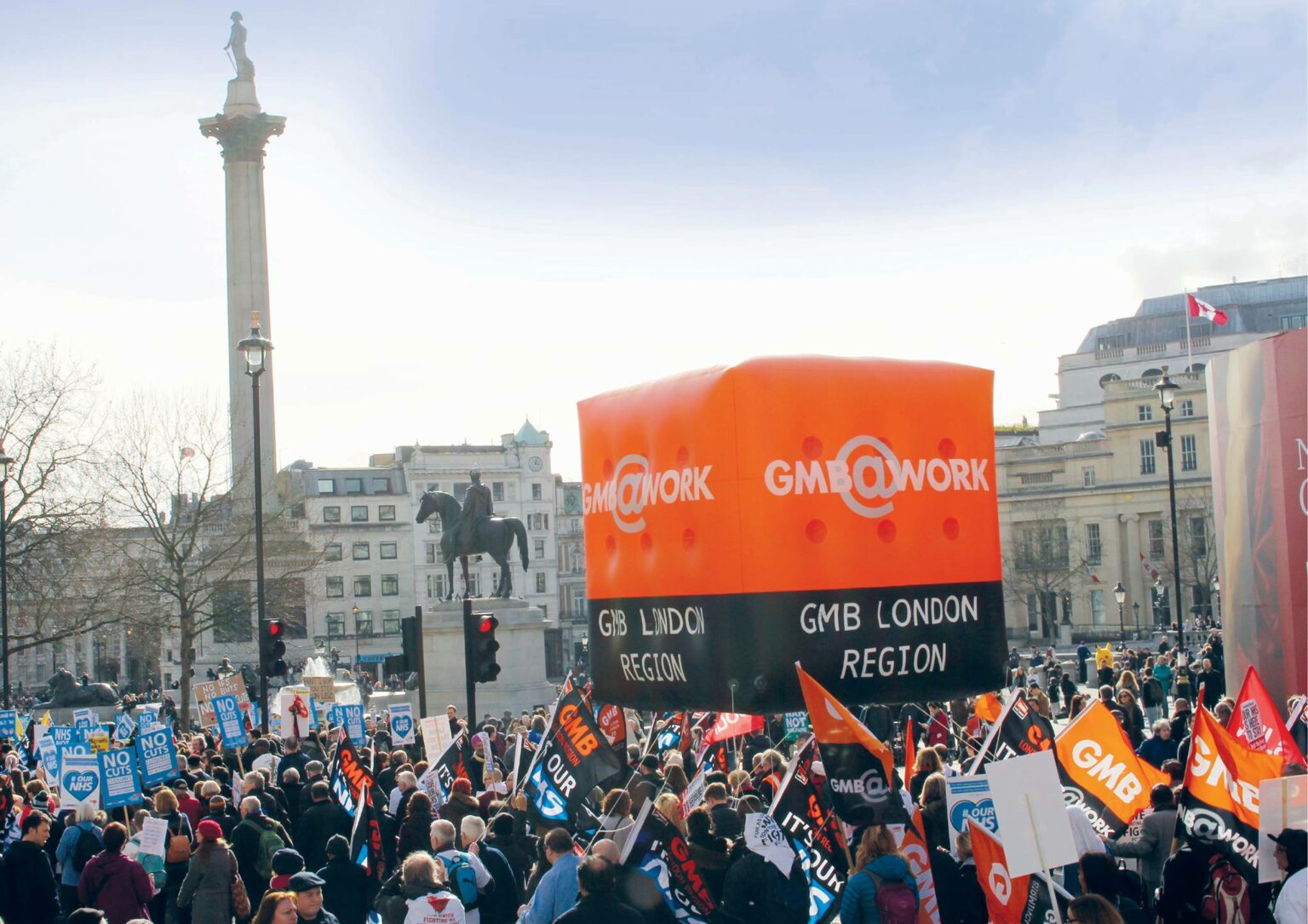One of the UK’s biggest trade unions has been accused of being “deeply misleading” after suggesting government climate plans involve “ripping out” gas boilers from people’s homes.
The GMB union, which represents 500,000 workers including gas engineers, said this week that plans to replace fossil fuel boilers to cut household carbon emissions would lead to “heating chaos for millions”, calling low-carbon alternatives such as heat pumps “unproven technology”.
The statement drew criticism from multiple quarters, including the union’s own members, the renewables industry and government.
Echoing backbench Tory MPs critical of net zero transition policies, GMB National Secretary Andy Prendergast said: “Ripping out existing boilers across 24 million homes across the UK is utterly absurd.
“It will lead to heating chaos for millions of people and general resentment towards the UK’s drive to net zero – especially if households are then forced to rely on unproven heat pump technology.”
He called for investment in hydrogen technology to use the existing energy grid and provide jobs for gas engineers.
The statement was called “disappointing” by one GMB member, while the government has said the claim is “deeply misleading”.
Antony Walker, Retirement Housing Manager at not-for-profit provider Housing21, said on Twitter: “As a [GMB] member I find this inaccurate view concerning and disappointed to find my union so flagrantly misrepresenting the truth.
“No boiler will be ‘ripped out’ unless it no longer works… just like now.”
A BEIS spokesperson said: “The government has absolutely no plans to ‘rip out’ existing boilers – this is deeply misleading.
“Over the next 15 years, we will incentivise households to switch to less polluting and more efficient heating systems as people come to replace their fossil fuel boilers.
“Our entire approach will be to keep energy bills low and ensure this gradual transition away from gas boilers is fair and affordable for consumers and the taxpayer.
“In addition to our world-leading Hydrogen Strategy, our detailed approach in this area will be set out shortly in the Heat and Buildings Strategy.”
In June, green campaigners expressed concern after GMB elected Gary Smith as General Secretary over his previous call for the upcoming UN COP26 climate summit in Glasgow to be scrapped in favour of investing the money locally.
Just Transition
The Trades Union Congress (TUC), of which GMB is a member, this week called for faster investment in green jobs, warning that up to 660,000 jobs were at risk “unless the government urgently scales up investment in green tech and industry”.
Frank Gordon, Director of Policy at the Association for Renewable Energy and Clean Technology (REA), said: “We know that domestic heating plays a large part in the UK’s carbon emissions and the heating sector as a whole represents roughly a third of all UK emissions.”
He said there were various rumours but that no one knows the final plans until the government releases its final Heat and Buildings Strategy.
Gordon added: “We believe any sustainable heat policy should be accompanied with support for households to make any changes, especially those who might struggle to meet the costs of the transition.
“It is also worth noting the speculation is centred around the installation of new heating equipment, so existing kit would not need to be taken out and replaced. This would mean that a boiler would only need to be changed at the end of its lifetime, at which point there would be an expense no matter which technology was used to replace it with.”
When asked, GMB’s Andy Prendergast told DeSmog: “No one is arguing about the need to achieve net zero as soon as possible. But in order to deliver this in a sustainable and democratically acceptable way, the GMB believes that a far better solution is to invest in hydrogen technology which has the potential to be both environmentally sustainable whilst utilising existing technologies and protecting jobs within the gas industry.
“Whilst this may rely on a mix of hydrogen and natural gas in the short term, this would simply bridge the system until the further development of green hydrogen which is a long lasting, environmentally sustainable solution.”
On the claim that government plans involve “ripping out” boilers, he added: “In terms of the position regarding ripping out current gas boilers, this is a worse case scenario but one that needs to be understood in the context of the move to net zero.
“GMB strongly believes that net zero is absolutely necessary but that it needs to be undertaken with the support and engagement of workers and communities and in a way that is sustainable and deliverable.”
Subscribe to our newsletter
Stay up to date with DeSmog news and alerts







